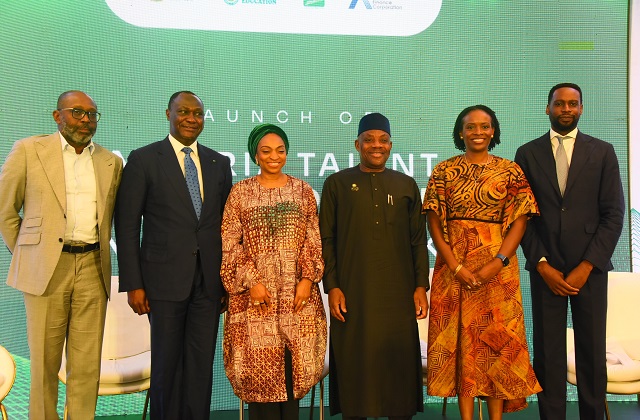Nigeria has taken a major step toward reshaping its human capital landscape with the official launch of the Nigeria Talent Accelerator Network (NTAN), a landmark initiative designed to build a globally competitive workforce, close productivity gaps, and accelerate the country’s digital and industrial transformation.
The initiative, unveiled under the World Economic Forum’s Reskilling Revolution in Nigeria, positions the country among global leaders investing in large-scale talent development.
It is jointly co-chaired by the Federal Ministry of Industry, Trade and Investment and the Federal Ministry of Education, with coordination by the National Talent Export Programme (NATEP).
Through this framework, Nigeria now formally joins the Global Accelerators Network, a worldwide platform that drives collaboration among governments, private sector leaders, and development partners to strengthen workforce readiness for the future of work.
Speaking at the launch, Dr. Jumoke Oduwole, Honourable Minister of Industry, Trade and Investment, hailed the milestone as “a decisive step towards building a globally competitive workforce that can power Nigeria’s next phase of industrialisation and innovation.”
According to her, the Talent Accelerator Network will serve as a rallying point for public and private sector stakeholders to create sustainable pathways for skills development, youth empowerment, and inclusive economic growth, ensuring that Nigerian talent is not only equipped for local opportunities but also globally competitive in emerging industries.
“The Nigeria Talent Accelerator Network represents a turning point in connecting policy, industry, and education. It creates a unified platform for driving employability, productivity, and inclusive economic growth.”
Similarly, the Honourable Minister of Education, Dr. Maruf Alausa, speaking during the launch, reaffirmed the Ministry’s dedication to aligning education and vocational training with labour market needs, ensuring that Nigerian youth are equipped with future-ready skills and are competitive globally.
“The Accelerator will serve as a platform for collaboration among government agencies, private sector leaders, academic institutions, and civil society. Together, these stakeholders will co-create scalable solutions to reskill and upskill the Nigerian workforce, while aligning national education and employment policies with the demands of the modern economy,” the minister said.
“Through this collaboration, Nigeria is not only preparing for the future of work but also helping to define it. We are developing a coordinated Action Plan to address the talent gaps and leverage the huge opportunities for talent export,” said Teju Abisoye, the National Coordinator of NATEP.
The initiative will prioritize the development of digital and transferable skills to support emerging sectors such as technology, business process outsourcing, and green industries.
It will also focus on mobilizing public-private partnerships to fund and scale reskilling programs, enabling workforce redeployment into high-demand roles, and building data-driven systems to anticipate future skills needs and inform responsive policymaking.
Saadia Zahidi, Managing Director, World Economic Forum welcomed the launch, noting that “The World Economic Forum is pleased to collaborate with Nigeria on advancing its skills development and workforce readiness.
“This initiative reflects our shared commitment to equip individuals with the capabilities needed to thrive in a rapidly changing global economy. By investing in human capital, Nigeria is positioning itself not only to meet domestic workforce needs but also to contribute talent and innovation to the global economy.”
Nigeria’s participation in this global initiative underscores its commitment to strengthening human capital development, promoting digital inclusion, and positioning the nation as a competitive talent hub for Africa and the world.
The Accelerator complements ongoing national reforms aimed at diversifying the economy, deepening innovation capacity, and driving broad-based prosperity.
The Reskilling Revolution is a World Economic Forum initiative aimed at providing better education, skills, and economic opportunities to one billion people by 2030.
It brings together global businesses, governments, and learning institutions to drive national transformation through programs such as Skills and Education Accelerators and the Reskilling Revolution Champions and Commitments.

